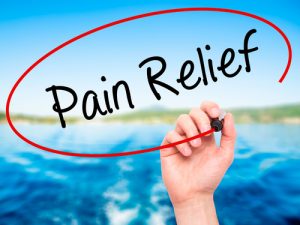 IV ketamine treatments have been shown to help patients suffering from certain forms of neuropathic pain to include Complex Regional Pain Syndrome (CRPS), which was formerly known as Reflex Sympathetic Dystrophy (RSD). Patients with frequent chronic migraine headaches, trigeminal neuralgia and phantom limb pain have also found relief through ketamine infusions.
IV ketamine treatments have been shown to help patients suffering from certain forms of neuropathic pain to include Complex Regional Pain Syndrome (CRPS), which was formerly known as Reflex Sympathetic Dystrophy (RSD). Patients with frequent chronic migraine headaches, trigeminal neuralgia and phantom limb pain have also found relief through ketamine infusions.
Neuropathic Pain may begin from any type of injury or disease process such as cancer. When nerves get damaged during a typical injury, the nerves send the appropriate pain signals to the brain so the person can protect themselves from further injury. During the healing process, the nerves injured may not heal well and may continue to send painful signals to the brain often in a burning, shooting or stinging type of pattern. The pain often occurs sporadically with no particular reason for the pain.
The brain will typically send inhibitory signals down through the spinal cord to decrease the pain signal that is ascending to the brain. This process ensures that the pain accurately represents the actual damage. With Neuropathic pain, these inhibitory signals don’t work properly and increased pain signals are making their way to the brain. When this happens, the patient experiences incredible pain from stimulus that are not normally that painful.
One example of Neuropathic pain is Phantom Limb Syndrome. This has unfortunately occurred with many of our soldiers who lost limbs from IED blasts in Iraq and Afghanistan. When an arm or leg has been removed because of an injury or illness, the brain normally doesn’t receive any signals from the severed nerves representing the missing limb. With Phantom Limb Syndrome, the severed nerves still send pain messages to the brain from the missing limb. These nerves are misfiring and causing intolerable pain in the phantom limb.
Ketamine works by breaking the pain cycle and allowing the neural circuitry to reset itself. Patients are offered 5 separate Ketamine infusions performed over 5 days or approximately a week and a half. A booster treatment may be necessary when the patient’s pain slowly starts to return over time. Patients may wean themselves down (with the help of their prescribing physician) from their pain medications to avoid the unpleasant side effects and reduce their tolerance to opiod pain medications.
Please call (760) 331-7735 for more information!
